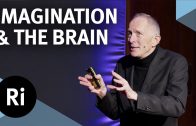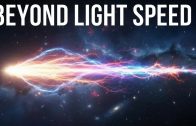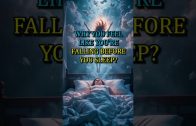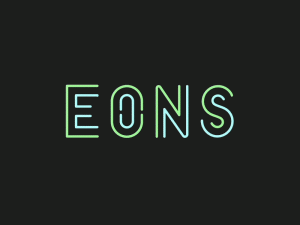The science of imagination – with Adam Zeman
From hallucinations to sleepwalking, from REM sleep to delusions – the latest scientific discoveries in the world of the imagination.
Watch the Q&A here (exclusively for our Science Supporters): https://youtu.be/4TEDcjHjZpA
Buy Adam’s book “The Shape of Things Unseen: A New Science of Imagination”: https://geni.us/Ea78BBx
This lecture was recorded at the Ri on the 18 January 2025.
We live much of our lives away from the here and now – as we reminisce about the past, anticipate the future, daydream, enter the virtual worlds created by art and science. This becomes less puzzling once we appreciate that our experience in the here and now is a creative achievement, the result of massively complex processing within our sugar- and oxygen-hungry, ceaselessly active brains. To enter imaginary worlds we have only to run this dynamic, experience-generating system off-line. Many animals can probably do so, for example when they dream: the unique feature of human imagination is that we have evolved to share what we imagine.
It is easy to assume that we all imagine in similar ways, but the recent discovery – or rediscovery – of extreme variations in imagery shows that this is far from the case. The 1-4% of people with aphantasia who lack imagery are more likely to work in STEM subjects and often report a thin memory for their personal past. Intriguingly their dreams are frequently visual despite their lack of wakeful imagery. People with hyperphantasia are more likely to work in ‘creative’ trades, and may be more vulnerable to conditions driven by imagery, like PTSD. The great public interest in these imagery extremes reflects our fascination with what happens in one anther’s minds and the extent of cognitive diversity.
—
Adam Zeman is Honorary Fellow at the Centre for Clinical Brain Sciences at the University of Edinburgh, and Honorary Professor of Neurology at the University of Exeter. He was brought up in London and trained in Medicine at Oxford University Medical School, after a first degree in Philosophy and Psychology. His earlier books include Consciousness: A User’s Guide, A Portrait of the Brain, and, as co-author, Epilepsy and Memory.
—
The Ri is on Twitter: http://twitter.com/ri_science
and Facebook: http://www.facebook.com/royalinstitution
and TikTok: https://www.tiktok.com/@ri_science
Listen to the Ri podcast: https://podcasters.spotify.com/pod/show/ri-science-podcast
Donate to the RI and help us bring you more lectures: https://www.rigb.org/support-us/donate-ri
Our editorial policy: https://www.rigb.org/editing-ri-talks-and-moderating-comments
Subscribe for the latest science videos: http://bit.ly/RiNewsletter
Product links on this page may be affiliate links which means it won’t cost you any extra but we may earn a small commission if you decide to purchase through the link.


























